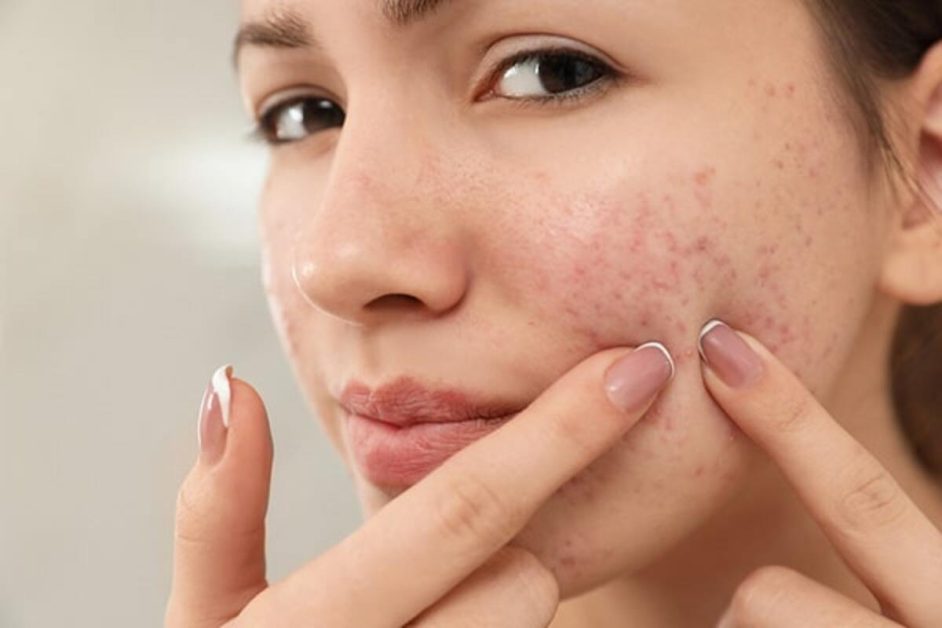For many people, breakouts don’t end with the teenage years. Hormonal fluctuations that spark acne can continue well into adulthood. And adult acne comes with its own frustrations, from painful cysts to dark marks marring one’s professional appearance. Fortunately, with the right at-home regimen, it’s possible to treat hormonal adult acne without stepping foot in a clinic.
Read on for a complete guide to getting your glow back and banishing hormonal breakouts for good – no appointments required at even the best clinics like HealthyRemedies.
Understand the Hormonal Connection
Hormonal acne flares up due to androgen hormones like testosterone. Excess sebum production and inflammation result from these hormones stimulating oil glands. Fluctuations related to menstrual cycles, pregnancy, and menopause can trigger breakouts. Stress also spikes androgen levels, worsening acne. By understanding these hormonal factors, it’s easier to manage symptoms.
Start and End Days with Cleansing
Thorough cleansing morning and night is key, as hormonal skin produces extra oil and buildup. Use a non-drying gel or foam cleanser that won’t strip skin. Double cleansing at night helps remove every trace of makeup, sunscreen, and accumulated oil. But take care to avoid excessive washing that could trigger more oil production.
Exfoliate Strategically
Gentle exfoliation can help keep pores clear and enable better product absorption. But over-exfoliating irritates hormonal skin. Use a soft chemical exfoliant like lactic acid once or twice a week. Or try a silicone brush or konjac sponge for very gentle sloughing on non-exfoliant days. Always avoid harsh scrubs with beads or shells.
Apply Acne-Fighting Ingredients
Look for over-the-counter products with acne-fighting ingredients like salicylic acid, benzoyl peroxide, or retinol. Salicylic acid clears buildup inside pores and reduces inflammation. Benzoyl peroxide kills acne-causing bacteria. Retinol boosts cell turnover to unclog pores while improving texture. Using one or a combination daily keeps breakouts in check.
Spot Treat to Prevent Scarring
Never pick or pop hormonal cysts, which can scar. Instead, use targeted spot treatments containing acne-fighting activities. Dab benzoyl peroxide cream on stubborn spots to dry them out and kill bacteria. Salicylic acid patches help shrink emerging zits. Spot treat with care to avoid irritating healthy skin.
Always Follow with Moisturizer
Acne treatments can dry out skin, triggering even more oil production. Apply an oil-free, non-comedogenic moisturizer after cleansing and spot treating. Look for hydrating ingredients like hyaluronic acid, glycerin, aloe vera, and ceramides. For daytime, use a moisturizer with a sun protection factor (SPF) of at least 30.
Mask Twice Weekly for Clearer Skin
Clay, charcoal, AHA, and sulfur masks keep acne at bay without drying skin like daily acids can. Use an absorbent clay or charcoal mask to detoxify pores midweek. Then do an AHA or sulfur mask on weekends to lift dead skin cells revealing clearer skin. Rinse after 10 minutes before the masks over-dry.
Reduce Inflammation with Tea Tree Oil
The antimicrobial properties in tea tree oil help decrease breakout inflammation when applied in moderation. Mix 2-3 drops with a gentle carrier oil or moisturizer and dab onto problem areas. Take care not to overuse pure tea tree oil, which can irritate skin.
Never Sleep in Makeup
Allowing makeup, especially foundation, to sit on skin all night spells disaster for acne-prone complexions. Establish a habit of cleansing thoroughly before bed, no matter how tired you are. Failing to remove makeup and sunscreen leaves pores clogged and skin inflamed. Sleeping makeup-free prevents unnecessary breakouts.
Manage Stress for Clearer Skin
Easier said than done, but managing stress through yoga, meditation, or counseling helps keep acne-triggering hormones in check. Stress-reducing habits allow skin to heal and prevent worsening of breakouts. Make time for relaxing self-care activities as part of your skincare routine.
Know When to Seek Professional Help
Most mild to moderate hormonal acne can be managed at home with patience and diligence. But if you don’t see improvement after 3 months of focused skincare, seek professional guidance. A dermatologist can assess if prescription topicals or oral medications could help in stubborn cases.
Conclusion
With a gentle yet strategic at-home regimen customized to your skin, it’s possible to achieve clearer, breakout-free skin without a trip to the dermatologist. Listen to your skin’s needs and stick to the basics of cleansing, moisture, and proven acne fighters. Consistency and care will help reveal your healthiest, most radiant complexion yet.

